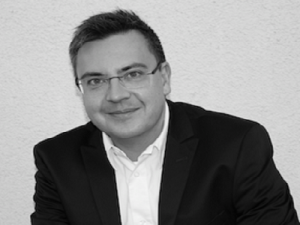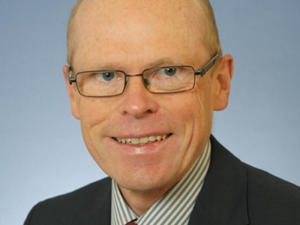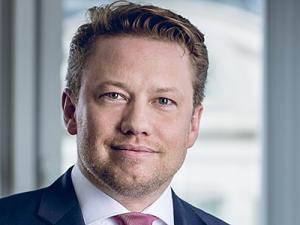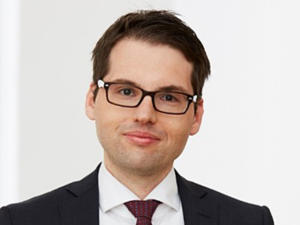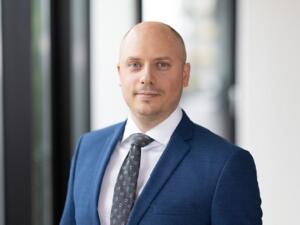Munich takes new approach to willingness of licensee in VoiceAge against HMD battle
With their decisions in Huawei vs ZTE and Sisvel vs Haier, the CJEU and the Federal Court of Justice set the basis for FRAND jurisprudence in Germany. The Higher Regional Court Munich now partly deviates from this case law in a dispute between VoiceAge and HMD. At the same time, VoiceAge scored a win in a parallel nullity suit.
8 November 2024 by Konstanze Richter
In a recent legal notice the court lays down its “current, provisional” view on how to proceed in FRAND disputes. While still following the established case law in many questions, the Higher Regional Court Munich introduced a new approach regarding the willingness of a licensee (case ID: 6 U 3824/22 Kart).
The the 6th civil senate around presiding judge Lars Meinhardt heard the case last week. The court presented the new FRAND framework to the parties before the oral hearing and discussed it with VoiceAge EVS and HMD on 31 October. A week later, the court published the legal note, which is now available to JUVE Patent.
The legal note is based on the infringement proceedings between VoiceAge and HMD regarding EP 2 102 619. It is one of a total of five SEPs over which the two parties have been fighting bitterly for years. The FRAND issue is at the center of the dispute.
The EU Commission intervened and submitted a statement in an amicus curiae brief in April. It follows the CJEU in Huawei v. ZTE on the issue of willingness to license.
Mostly unwilling
According to previous case law, which focuses primarily on the conduct of a potential licensee, a patent user is almost always considered unwilling especially before the Munich Regional Court. As stated by the recent legal notice, the Higher Regional Court Munich now also takes a closer look at the patent holder’s licence offer.
The requirement for a “continuing willingness to take a licence”, is met in the eyes of the court only if an implementer provides reasonable security. They can do this, for example, with a bank guarantee.
Accordingly, a defendant that meets these requirements is generally considered willing to license. However, the security must be based on the amount of the plaintiff’s latest offer. Whether this is FRAND or not is irrelevant at this point of the negotiations. At the same time, the defendant must undertake to pay the security if the plaintiff’s offer proves to be FRAND after a final court ruling. It may take a long time until a court finally determines this.
First offer not FRAND
However, in the event that a patent holder has made an unsolicited license offer to a user and the parties then enter into negotiations, the defendant does not necessarily have to express a willingness to license.
At the same time, in the opinion of the court, the patent proprietor’s first offer does not have to be FRAND. The Higher Regional Court of Munich thus follows the German Federal Court of Justice’s ruling in Sisvel v. Haier II. If it were FRAND, the further steps of the FRAND dance would be superfluous, as the only permissible reaction of the SEP user would be to accept the offer.
VoiceAge and HMD now have time to respond to the new approach in written form. A decision in the appeal over the infringement of EP 619 is expected in February 2025.
Another win for VoiceAge
In 2019, VoiceAge sued HMD over five patents in Mannheim and Munich. EP 1 509 903, EP 2 162 880, EP 2 707 687, EP 3 132 443 and EP 619 cover speech-coding standard EVS.
So far, most of the judgments have been in favour of the plaintiff. The Regional Courts Mannheim and Munich found all patents to be infringed. HMD subsequently removed the EVS functionality from its devices sold in Germany. The mobile phone manufacturer appealed against all judgments to the Higher Regional Courts in Karlsruhe and Munich. In the case of EP 903 and EP 687, the Higher Regional Court in Karlsruhe confirmed the first-instance infringement judgment. An appeal against denial of leave to appeal is pending at the Federal Court of Justice.
- Lars Meinhardt
- Klaus Bacher
The proceedings concerning EP 443 were temporarily suspended by the Munich Higher Regional Court. In 2022 the patent had been revoked by the Federal Patent Court on request of HMD and Oppo’s German subsidiary Orope. VoiceAge appealed the decision and this week, the 10th civil senate of the Federal Court of Justice under presiding judge Klaus Bacher upheld EP 443 in limited form (case ID: X ZR 125/22). Now the parallel infringement suits against HMD and Orope (Oppo) can resume.
Earlier this year, the second instance court had already upheld the EP 903 and EP 880 (case IDs: X ZR 11/22 and X ZR 14/22).
Large teams
The Düsseldorf based IP boutique Wildanger Kehrwald Graf v. Schwerin represents VoiceAge. A large team of partners are responsible for the infringement actions, including Alexander Wiese, Alexander Reetz, Peter-Michael Weisse, Jasper Meyer zu Riemsloh, Eva Geschke and Ole Dirks.
In the nullity suit, Bosch Jehle represented VoiceAge. The patent attorney firm traditionally has very close ties to VoiceAge. Patent attorneys Thomas Hell and Rudolf Reichold took the lead in the proceedings before the Federal Court of Justice, assisted by litigator Soenke Fock of Wildanger.
- Soenke Fock
- Peter-Michael Weisse
- Thomas Hell
HMD relies on a team from Hoyng ROKH Monegier and Samson & Partner. Both firms have a close working relationship. Düsseldorf based litigator Lars Baum of Hoyng ROKH Monegier is in the lead for the infringement proceedings. The young partner took over from Klaus Haft, who had lead the case in the beginning. The team also included associates Franca Poll-Wolbeck and Joscha Torweihe.
- Lars Baum
- Andreas Kramer
Patent attorney Georg Jacoby of Samson & Partner took the lead in the nullity suit. Thomas Behrens assisted him. Emma Sopyllo, Head of IP and litigation at HMD, and representatives of the Finnish IP law firm Condico were also connected via video.
In addition to representatives of the EU Commission, an antitrust team from Cleary Gottlieb Steen & Hamilton was also involved regarding the amicus curiae brief.
In the nullity suit, a team from mixed firm Vossius & Partner represented Orope. Litigators Andreas Kramer and Hannes Obex assisted patent attorney Ju Min Kim.
